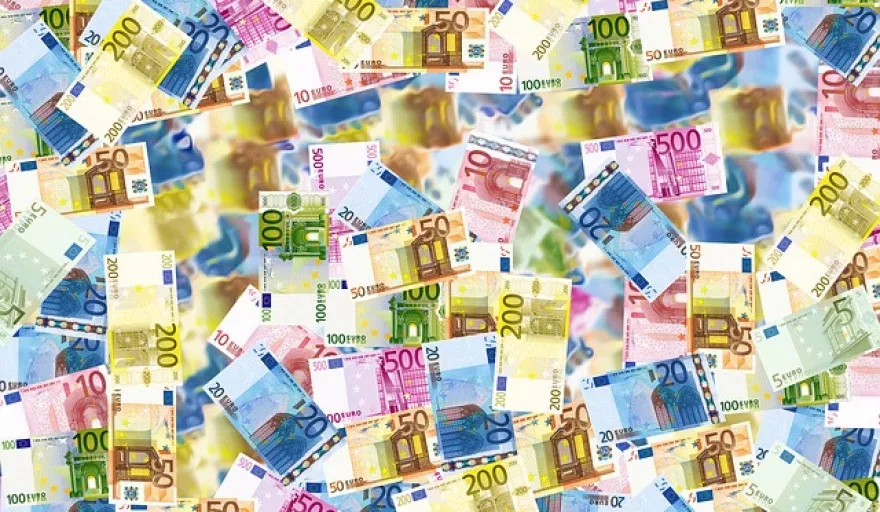INTRODUCTION
The 20th anniversary has been hardly celebrated with joy given the European context. Nationalistic parties are growing across Euro-members including founding countries like Italy and France criticizing the European governance – both the European Commission and the ECB – for tying government’s hands. The nationalistic parties’ motto is quite simple: populations suffer because governments are not free to spend enough to restart economic growth and improving the welfare of the most fragile ones. This demand has grown with the economic downturn starting after the 2007 crisis and accentuated in Euro countries with the burst of the sovereign debt crisis in 2010. Why is discontent so high in Euro-member countries? It would appear that they have been fooled, and their criticisms indicate that the promises of the Euro have not been delivered.
THE EURO IS NOT A MAGICIAN
According to Robert Mundell founding paper “A Theory of Optimum Currency Areas” published in 1961, the main advantage of sharing a currency among countries characterized by a highly integrated trade is getting rid of exchange rate cost, achieving monetary stability, and consequently maximising economic growth. Indeed, following the collapse of Bretton Woods in 1971, European countries had desperately tried to insulate their economies from exchange rate fluctuations recreating successive fixed exchange rate arrangements with relative success until they decided they should definitely opt for a common currency in order to get rid of the exchange rate risk.
Moreover, it was thought that adopting a common currency would automatically increase price transparency and therefore competition allowing for a more efficient allocation of resources across countries sharing the same currency. A more efficient allocation of resources also meant that some activities could be shifted from one country to another, implying social costs. After all, fixed exchange rate arrangements were still leaving the option to devaluate or reevaluate. Increasing economic efficiency in the common currency area has never meant that there would be no cost of adjustment and gains would be equally shared among members.
Indeed, in his original paper, R. Mundell underlines that the condition for a common currency to work smoothly is to have countries sharing the same business cycle otherwise you need a perfect mobility of the factors of production to allow for the adjustment. What does this mean? It means that within a common currency area, when some countries are experiencing a recession while others are experiencing an expansion, the formers will need to adjust by letting the prices decrease, with the labor force migrating to the countries in expansion.
In other words, sharing a currency is not an easy ride especially if the countries sharing the same currency are different. But this does not take away the fact that sharing the same currency increases economic welfare. Proof: based on the recent report published par the European Parliament in January 2019 entitled “Euro project, 20 years on”, the Euro-area member countries have clearly enjoyed the longest period of steady economic growth since the establishment of the Euro despite the sovereign debt crisis. As stated, “since the establishment of the Euro and until the subsequent recession in 2011, GDP grew by 30%”. Nonetheless, the steady growth has come at the price of a relatively lower level of economic growth as in the previous expansion where “GDP had grown by 40 percent”. Turning to data on wage per capita as a way to capture the situation of Euro-citizens, they tell the same story as the GDP data: the volatility of wage per capita has been significantly less volatile over the period but the growth of wage per capita has been comparatively lower as well. On paper, the Euro did deliver its promise of bringing stability and economic growth.
THE EURO AGAINST THE SOVEREIGNTY OF STATES
So why has discontent been growing so much across Euro-members’ countries since the sovereign debt crisis? After all, with or without the Euro, the most fragile population would have suffered anyway from the consequences of the crisis. First of all, many believe the sovereign debt crisis worsened because of the Euro. If you take the case of Greece, after the default and the first bail out, Tsipras access to power is a perfect outcome of the population discontent with the inability of the defaulted state to pursue its own economic agenda. Greeks were clearly waiting for government’s prompt action to protect them from the consequences of the sovereign debt crisis. They blame the European institutions for the poor state of their economy and the policy enforced by the Troika – The European Commission, the ECB and the IFM. Today Greece has barely recovered from the crisis with a GDP still below the pre-2010 level. Even Tsipras had to surrender and follow the economic policy recommendations “dictated” by the Troika to avoid the disruption of the Greek economy or the exit of the Euro. This episode has been a clear demonstration of how little sovereignty Euro member governments have. They are no longer empowered and free to choose their own policy. They have to follow the diktat of the European Commission and the ECB implementing economic policies in line with the growth and stability pact.
The rhetoric is the same in the Italian case with the rise of the M5S party and its access to power in the unlikely coalition with the North League party (despite the last unexpected turn of events). In Italy, the economic situation has also deteriorated as their GDP is still below the pre-crisis level and the population resents the European institutions for this given the fact that the European Commission has pressured its successive governments to curb government spending. On that matter, Matteo Salvini has built a reputation on defying the European commission. He even ironized last December: “Has the letter from Brussels arrived? I’m waiting for one from Father Christmas too”. The belief that neither the European Commission and /or the ECB should dictate any government economic policy is shared by all nationalistic parties across Euro member countries.
Indeed, the question of government spending is also a vivid debate among economists. To simplify it, we can say that supply side economists or free market economists – the most emblematic representative was Milton Friedman – are in favor of downsizing government spending to free economic resources and stimulate private economic activity. Meanwhile, demand side economists – prominent post-Keynesian economists like Stiglitz, Krugman – support government spending in order to restart economic activity. Even today, mainstream economist like Olivier Blanchard argues that austerity measures taken in the Euro area have done more harm than good. The demand for legitimating government spending is far from being exclusive to nationalistic parties. In that context, it is no wonder that people elect parties supporting such economic programs even if at the cost of less democracy! From their standpoint, they trade the undemocratic rules set by the European Commission against undemocratic governments they have chosen to elect.































